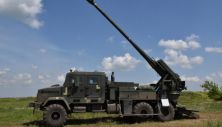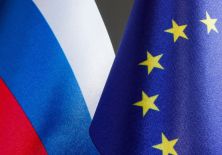Delivery of subpoenas, call to the military registration and enlistment offices, sending to war. Covert mobilization continues in Russia. On October 28, 2022, the Minister of Defense of the Russian Federation Sergei Shoigu announced the end of the so-called “partial mobilization”. And everything would be fine, but there is still no presidential decree on the end of conscription for war in Ukraine, FREEDOM reports.
“It is clear that the Russian authorities have never completely stopped mobilization activities, which means that a limited number of mobilized recruits are still going through the training system at a time when recruits are going through their own training cycle,” from the report of the American Institute for the Study of War.
The military-political leadership of Russia has prepared a document “Conclusions of the war with NATO in Ukraine”. It is distributed among military personnel. The document refers to the need to mobilize 5 million Russians. The General Staff of the Armed Forces of Ukraine (APU) says such messages could mean that the Kremlin is preparing to announce the second wave of so-called “partial mobilization.”
“A part of this masterpiece, among other things, highlights the main problems of the Russian occupation forces, including the inability of commanders to command personnel in the troops, the unsatisfactory state of discipline and combat training, the obsolescence of weapons and military equipment, the impossibility of commanders making decisions without mandatory coordination with the command, etc.” , – said Alexei Gromov, Deputy Chief of the Main Operational Directorate of the General Staff of the Armed Forces of Ukraine.
At the same time, Russia cannot physically call on the notorious 5 million. That is why mobilization comes in waves.
“They make a conveyor precisely because they can’t because of insufficient infrastructure, insufficient personnel and elementary conditional tanks – that is, equipment, weapons, uniforms, and so on. They do not have the ability to make this mobilization one step. Of course, they would like to, but they can’t. And therefore they have a mobilization “conveyor”, and nothing indicates that it has stopped, just as nothing says that it will stop until Russia loses,” military expert Igor Tokovenko.
To compensate for losses at the front, the Russian authorities decided to mobilize prisoners and expand the status of military personnel to members of volunteer formations. Putin was also instructed to create of a database of Russians who should be registered with the military. Meanwhile, work continues inside the country to eliminate errors and modernize military enlistment offices. Therefore, the conclusions are apparent: mobilization will continue.
“In general terms, the plan is something like this: for now, gain time and stabilize the front with the mobilized help. And then start all over again in the spring. By the spring of 2023, the loss of killed and wounded may be about 100 thousand. But this does not scare anyone: they will be replaced by conscripts, ”shared a source close to the Russian Federal Security Service.
Russian military commissars do not count the lives of those mobilized. They are thrown into the hottest points of the front, including near Bakhmut, a city that the Russian army has been unsuccessfully trying to capture for more than a month. The Russians themselves also talk about huge losses among their own.
“There are 16 of us in the platoon, understand? It was us, I understood, machine gunners … here. 16 people! In short, 5 people left! ”, – from the interception of the conversation of the Russian occupiers.
The only way for a mobilized Russian not to stay in Ukrainian soil forever and not become a war criminal is to surrender to the Ukrainian Defense Forces. You can get advice on how to be captured correctly and safely thanks to the “I want to live” project.
Ukrainian defenders guarantee all prisoners compliance with the Geneva Conventions: three meals a day, medical care, and the opportunity to contact relatives.
Read also: Lublin Triangle: Prime Ministers of Ukraine, Lithuania, Poland signed a joint statement













